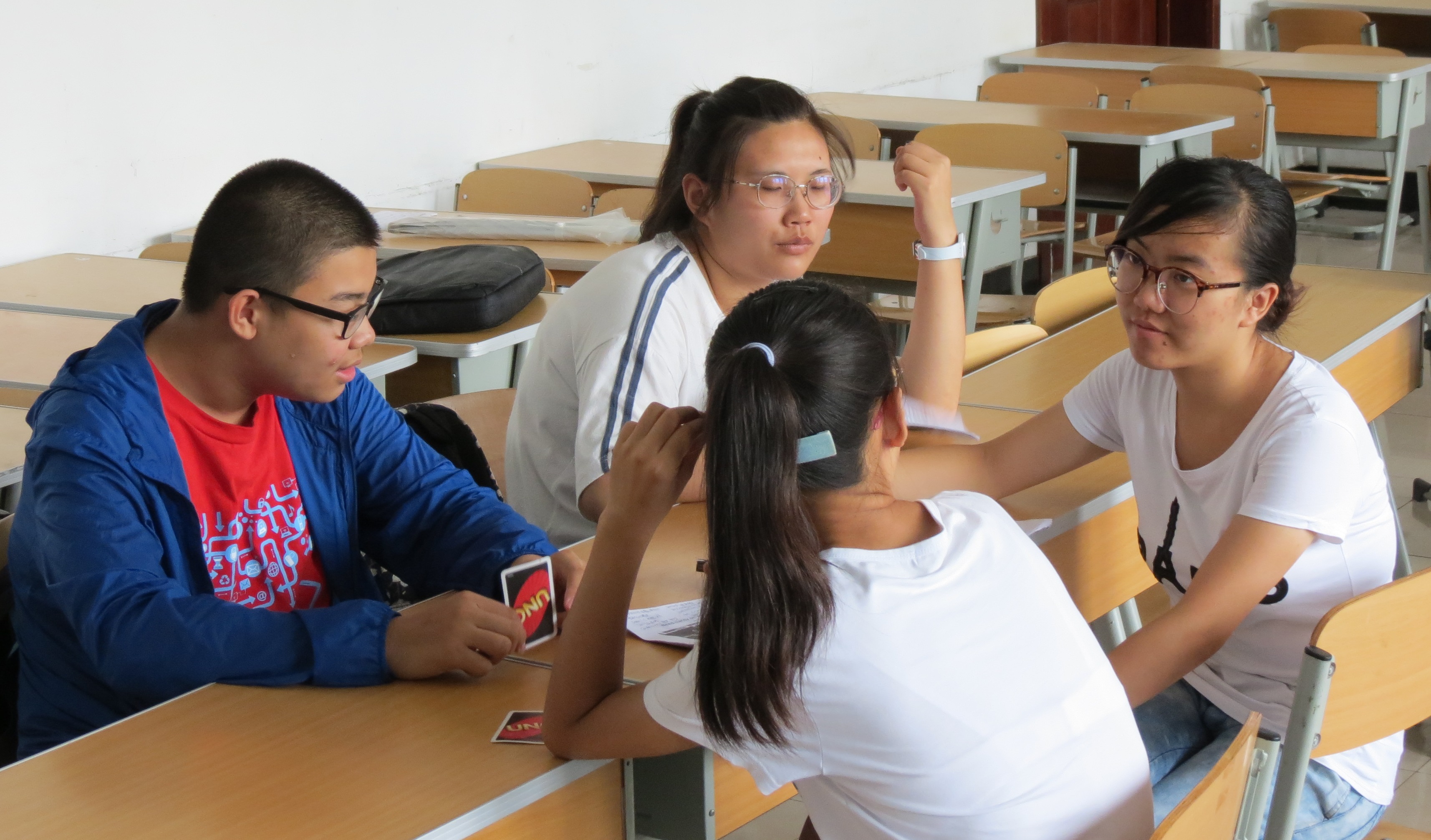This is my fourth (and last) group to teach during this summer session in Jilin. But three of my colleagues have already had this group. All of them have reported to me that it is a most difficult group, with hardly anyone interested in working. None of the teachers felt they had had much success in really getting the group to talk, so couldn’t give me any suggestions for classes or exercises.
 But I was encouraged by the time we broke for lunch. I started by writing my Chinese name on the board, then did my standard greeting in German, French, Spanish, and Korean. Like previous groups, these students were clearly intrigued and puzzled, until I explained in English that while I don’t speak Chinese I do speak (at least a little) of these other languages. This actually got me a round of applause! I then did my standard dictation (see previous post) and a review of the correct wording of it.
But I was encouraged by the time we broke for lunch. I started by writing my Chinese name on the board, then did my standard greeting in German, French, Spanish, and Korean. Like previous groups, these students were clearly intrigued and puzzled, until I explained in English that while I don’t speak Chinese I do speak (at least a little) of these other languages. This actually got me a round of applause! I then did my standard dictation (see previous post) and a review of the correct wording of it.
Then I passed out chalk and invited the students to write on the board any “new” vocabulary they had not understood from my presentation. There was a long hesitation. Now, the first couple of times I did this, students hesitated because they were not used to being called to write on the board. This time, though, glancing down at their copies of today’s article, it appeared to me that few had taken the kind of detailed notes I’ve seen in other classes. I wondered how many had bothered to pre-read the story. When they finally started filing towards the board, I looked over their dictation papers.
Lo and behold — with one exception, this class uniformly out-performed every other class with whom I’ve done this dictation. One student actually had no mistakes at all! Looking up to see what they were writing on the board, I saw that instead of eight to twelve words apiece, this group wrote an average of four new words. What’s more, most of them chose the same words.
My conclusion: this is a bright group who is capable of advanced work. I was encouraged in this impression when it was revealed that nearly all of them plan to be doctors.
After reviewing the vocabulary, I launched into Two Truths and a Lie. This was a hit, especially when I passed around the family photo. Then each student took a turn to introduce himself, give his English name, home province (and show it to me on a map), school major and then his Two Truths and a Lie. We had some laughs over these, and everyone broke for lunch in a good mood.

Things observed during the above:
– this group can use complex vocabulary
– there are fewer pronunciation issues than in other groups
– the few “problem accents” do interfere with comprehension. (I misunderstood a girl’s comment about a doctor as being about a daughter.)
– there is occasional confusion in using “he” and “she” (since Mandarin does not use gender in pronouns).
Success or failure? Time will tell.